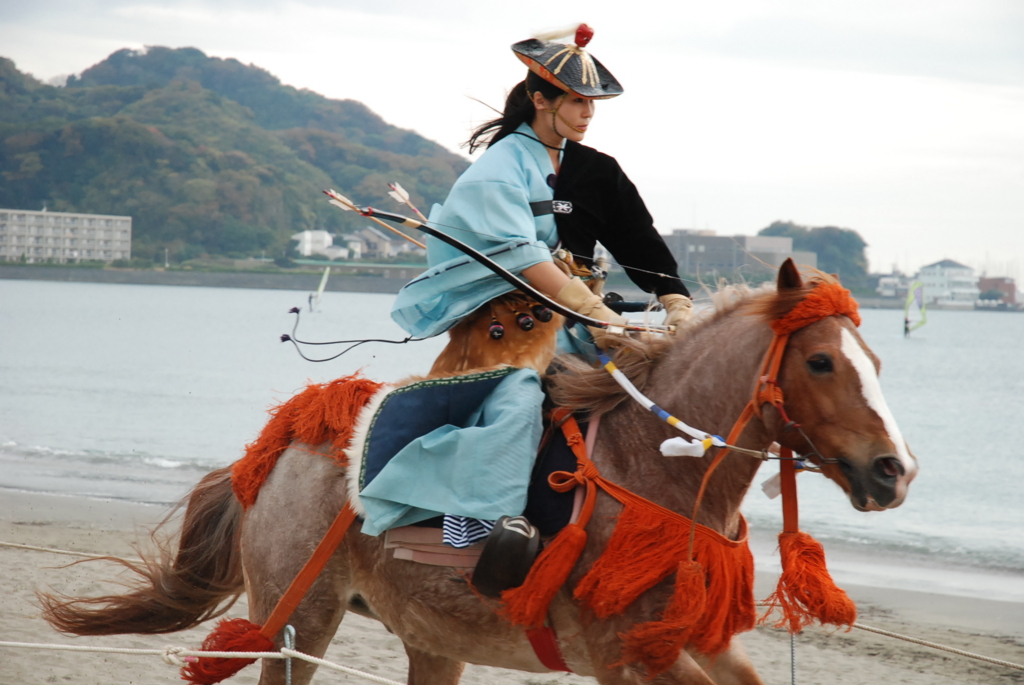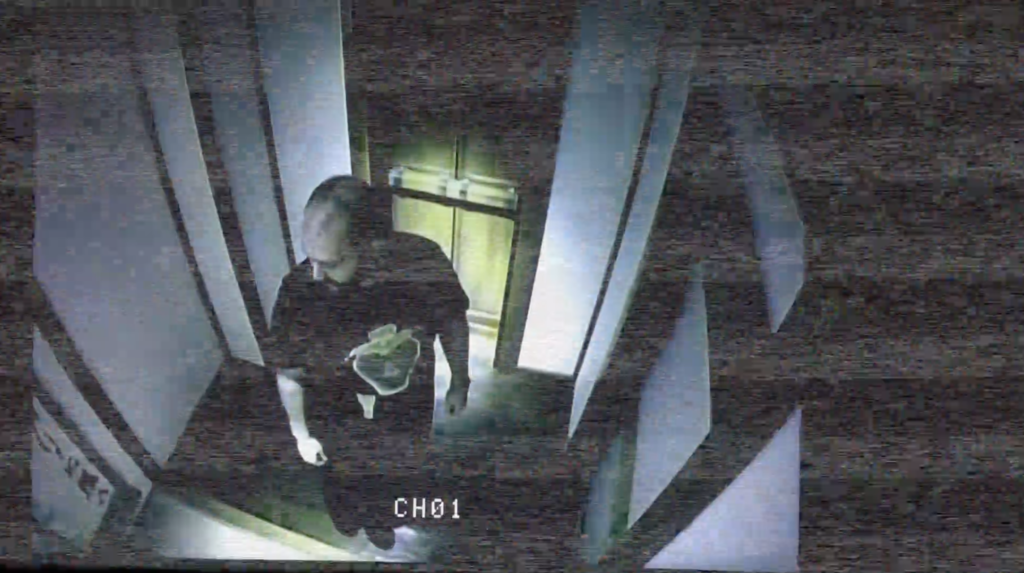This Saturday is Yabusame Festival!
This Saturday April 15th, a very special festival will take place in Asakusa: the Yabusame festival.

What is Yabusame?
A not very known Japanese martial art, even among the Japanese themselves, Yabusame is a type of mounted archery that dates back to the beginning of the Kamakura period (1192 - 1333). Considered by some as a ritual rather than a sport for its religious aspect, it is only taught in two schools in Japan as of today.
What is special about Yabusame?
If Yabusame is not a very famous Japanese martial art, it certainly figures among the most spectacular ones, for it is very complex and requires a range of impressive skills.
On a 255-metres track, Yabusame archers ride their horses at high speed, and have to shoot three arrows at three successive targets. This implies that they control their horse with only their knees, as their hands are holding the bow and arrow. The three targets are loaded with pink and white confettis beforehand so that when one of them is hit, it bursts in an explosion of what would easily be confused with cherry blossom petals. And if that wasn't enough, all the archers wear elaborate hunting costumes of the Kamakura period!
Where to see Yabusame?
If you are around Tokyo, there are three main location where Yabusame festivals take place, at different times of the year.
Meiji Jingu Shrine holds an event every year on Culture day, which falls on November 3rd in Japan, while the Toyama Park's event, in Takadanobaba, takes place on the second Monday of October.
But if you want to learn about and see more of the Japanese Culture, the best place to go is Sumida Park, whose Yabusame festival is every year on the third Saturday of April. After the festival, which lasts no more than a hour, you can cross the Azuma bridge back to Asakusa to have a glimpse of the ancient Tokyo: shop along Nakamise and admire the beautiful Kimono and Yukata worn by the visitors of the Sensoji temple.
And as we are only 5 minutes away from the temple, why not visiting us? Try one of our three Japanese-themed game rooms for an hour of adventure in total immersion, and take some time after your game to reflect on a day rich in history and culture, over some snacks and tea.
Easter, bunnies and eggs
You have probably noticed a lot of cute rabbits and eggs of all shapes and sizes popping up around Tokyo recently, and there is a very good reason for this: it's Easter!

If Easter is the most important Christian festival, it is also a holiday that marks the beginning of Spring and celebrates fertility in some cultures, and as such, it is celebrated in many different ways around the world. The date of Easter changes according to the first Sunday following the full moon occurring on or soonest after March 21. This year, Easter will be on April 16, 2017.
While the concept of Easter is new here, Japan is a country that loves to create festivals by adopting AND adapting celebrations from around the world. Over the last few years, the Easter season in Japan starts right after the cherry blossom season (beginning of April) and lasts until the rainy season (beginning of June).
Around the end of March, a few confectioneries start selling seasonal products on the theme. At the Tokyo Disney Resort, for example, there is a special hunt each year where guests are invited to find characters and eggs hiding around the parks including a new character named Usatama (from usagi, rabbit and tamago, egg). But where do the rabbit and eggs really orginate from?
The Easter bunny was born in Germany, and was originally an Easter "hare". Similarly to Santa Claus, the Easter hare would decide whether children had been good or naughty, and reward the good ones with colourful eggs, candies, and sometimes even toys, on the night before Easter. Although the traditions vary across the world, the egg remains an important Easter symbol: while in some countries they are hard-boiled and dyed or painted, in some others, they are made of chocolate and wrapped in foil, before being hidden by parents in their houses and gardens for the children to find and enjoy.
This year, we are organising our first Easter Hunt inside our game rooms: from Monday April 10th until Sunday April 16th, enjoy our games, find the hidden bunnies, and get a surprise!
Escape Hunt Tokyo wishes you all an Eggcellent and Eggciting Easter!
Player Trapped In Escape Room Overnight!

The staff of Escape Hunt Tokyo was shocked to discover a player who had been unable to get out and spent the night trapped inside of the escape room facility overnight.
33-year-old Dash Itsoo was visiting Japan from Holland when he and his friends decided to try an escape game adventure. While everyone else got out in time, Mr. Itsoo was mistakenly left behind and the game was reset with him trapped in the Samurai Espionage room.
"We always check the rooms at the end of the game to reset for the next player, but this time, it seems that the player followed one of the red herrings. He was looking for patterns in the wood grain behind one of the doors and got locked in," said Japanese game master Hideko Deguchi. "This is the kind of accident game masters are always worried about."
Security footage revealed that Mr. Itsoo made the most of his night in the room.
A representative of Escape Hunt Tokyo has confirmed that extra hint buttons are now in place to prevent this from happening in the future.
Spring Break memories for families at Escape Hunt Tokyo!
Playing an escape game with family is a chance to have a unique experience together.

Recently, one of our Game Masters recognized a player who was back at Escape Hunt Tokyo for more fun. This is not unusual because many players who try one of our games are excited to come back for one of our other games. But this time, it seemed that the player was trying the same game as last time. We had to find out why.
The player, named Emma, told us that she had played the ZEN room with friends a few weeks earlier. Because we offer an opportunity for speakers of different languages, ages and interests to work together in a fun environment, many students come to play our games with friends and teachers.
Emma had a great time and wanted to share the experience with her mom, dad and younger brother. Even though she had already discovered the secrets of the ZEN room, she did not spoil any of the puzzles for the other players. Emma told us that she got to see a different side of her family as they interacted and communicated under unusual circumstances. Turns out, they did not escape! But that was not the point. Emma and the other players had a great time as a family.
We here at Escape Hunt Tokyo were inspired by Emma and her family to extend a special limited-time offer to families from international schools to come play an exciting escape game.
"Spring Break Memories Family Campaign!"
When:Saturday March 25 ~ Sunday April 2, 2017
Who:Tokyo area international school students and their family members
Price:
3 Players: ¥8,000
4 Players: ¥9,500
5 Players: ¥11,000
Make a reservation by calling 03-6231-6621 and telling us the school in which your student is enrolled.
Make Spring Break memories with your family at Escape Hunt Tokyo!
Escape Hunt Tokyo in historic Asakusa is a real-life escape game experience! Players solve mysteries by using observation, critical thinking and intuition. Work together, decode puzzles and escape before time runs out!
The time limit is 60 minutes.
Look for clues to solve the mysteries before time runs out!
Each of the 3 games at Escape Hunt Tokyo offers a unique story to explore as a team with other players.
You will discover previously unknown skills both in other players and yourself. Discover, share and explore a unique environment that is fun for kids and adults.
Think you and your family have what it takes to escape? Give it a try and play RIGHT NOW!
What is the Sakura Festival all about?

If you've come to Japan hoping to have a glimpse of the country's famous cherry blossoms, here are a few things you need to know.
The cherry blossom season is one of, if not the most anticipated moment of the year for the Japanese people, who take it very seriously. As early as the end of January, a forecast is published that lists up to a thousand different cities spanning the whole country, as well as the dates when the cherry trees are expected to start flowering, but also reach full bloom.
According to this forecast, people accross the country get organised and sometimes take a day off to celebrate a centuries-old and cherished ritual, Hanami. For Hanami, or flower viewing, friends and families get together for a picnic under the cherry trees, where special bentos or enjoyed, sake is drunk, and the sakura (cherry blossom) are admired. If, on the outside, this ritual looks like a simple occasion to gather and eat together, it has a much deeper meaning to the Japanese people, taking root in the very nature of the sakura.
Coming with the spring, the sakura bloom in a spectacular explosion of white and pink, but for a brief moment; after only two weeks, they fall gracefully to the ground and wither, before disappearing with the wind. Because of their transient beauty and their fragility, the flowers are a symbol of the fleeting nature of life. Hanami, therefore, is an occasion to seize the day, to take the time to admire the beauty of life, as well as commemorate the loss of loved ones.
The sakura, finally, is a symbol of renewal: the blooming season coinciding with the beginning of the Japanese calendar, the flowers suggest a future full of possibilities for students starting their first day at school.
In Tokyo, the cherry trees will start blooming from March 25th this year, and the Hanami spots are numerous around the Capital. In Taito-ku, where we are, a popular viewing spot is the Sumida Park, with as many as 600 cherry trees! And how about experiencing a different kind of Hanami? Combine sakura viewing and an exciting adventure in old Japan with one of our games: admire the cherry blossoms in our lounge, before solving a mystery and escaping just in time to enjoy special sakura-flavoured delicacies!
If, like us, you cannot wait for spring to start, come and celebrate an early Hanami at Escape Hunt Tokyo!
Celebrate White Day at EHT from March 11th to 14th!

While many countries celebrate love on Valentine's Day, Japan has a second day for all couples: White Day.
To understand White Day, one must first understand Valentine's Day as it is celebrated in Japan. On February 14th, girls and women give chocolates to the boys or men of their choice, as a way of confessing their love. Often handmade, to show true love for the person they are intended for, those chocolates are called 本命チョコ (honmei-choco). But 本命チョコ are not the only chocolates gifted on Valentine's Day. There exist three other types of Valentine's chocolates:
- 義理チョコ (giri-choco), or "obligation chocolates", given to co-workers and aquaintances
- 友チョコ (tomo-choco, short for tomodachi-choco), or "friend chocolates", given, you guessed it, to one's friends
- 俺チョコ (ore-choco): a new trend, they are chocolates that one gifts oneself
A tradition started by the Japanese National Confectionary Industry Association in the 1970, White day is an "answer day" to Valentine's Day. On March 14th, boys and men generally give cookies to the girls and women from whom they received chocolates a month earlier. According to the kind of chocolates received, the cookies given can imply that romantic feelings are reciprocated, or simply express a social obligation to return a gift.
Cookies, like chocolate, always make a great gift, but how about trying something special this year? For a unique White Day, take the women in your lives to Escape Hunt Tokyo and experience a new kind of games! Our live games will take you back in time for three different Japanese missions: complete your Zen training, save the Shogun and your honor as a Samurai, or discover what happened to our disappeared Bride. And to celebrate this special occasion with you, we will hide treats in our game rooms just for you!
Give back to the women in your lives for White Day, with Escape Hunt Tokyo!
Spring break is coming!

For students in Japan, Spring Break is a very anticipated holiday: after a year of waking up early for classes, learning so many different things and participating in extra-curricular activities, it is finally time for a break free of the stress of exams and homework!
And for many, it also means graduation: a day that celebrates one's achievements and hard work, before the beginning of something new.
For all these reasons, Spring Break, or 春休み (read haru yasumi) is the perfect opportunity to try something new and different. Some university students, who enjoy longer holidays, will take advantage of their free time to prepare their future - it's the time for doing internships, arubaito (Japanese part-time jobs), or trying to get a driver's licence - while others will celebrate graduation by enjoying a 卒業旅行 (graduation trip) abroad with friends.